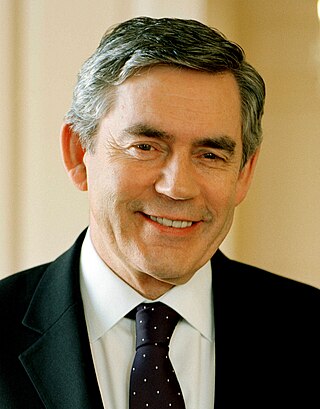
James Gordon Brown is a British politician who served as Prime Minister of the United Kingdom and Leader of the Labour Party from 2007 to 2010. He previously served as Chancellor of the Exchequer under Tony Blair from 1997 to 2007. He was Member of Parliament (MP) for Dunfermline East from 1983 to 2005, and Kirkcaldy and Cowdenbeath from 2005 to 2015.
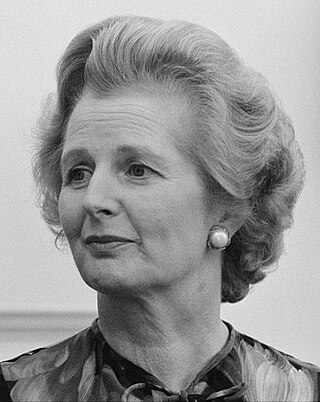
The 1979 United Kingdom general election was held on Thursday 3 May 1979 to elect 635 members to the House of Commons. The election was held following the defeat of the Labour government in a no-confidence motion on 28 March 1979, six months before the Parliament was due for dissolution in October 1979.

The 1983 United Kingdom general election was held on Thursday 9 June 1983. It gave the Conservative Party under the leadership of Margaret Thatcher the most decisive election victory since that of the Labour Party in 1945, with a majority of 144 seats and the first of two consecutive landslide victories.

The 1992 United Kingdom general election was held on Thursday 9 April 1992, to elect 651 members to the House of Commons. The governing Conservative Party led by the prime minister John Major won majority of 21, and would be the last time that the Conservatives would win an overall majority at a general election until 2015. It was also the last general election to be held on a day which did not coincide with any local elections until 2017. This election result took many by surprise, as opinion polling leading up to the election day had shown a narrow but consistent lead for the Labour Party under leader Neil Kinnock during a period of recession and declining living standards.
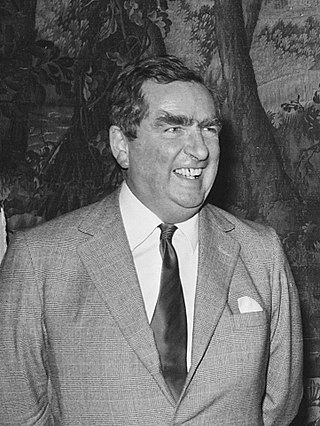
Denis Winston Healey, Baron Healey, was a British Labour Party politician who served as Chancellor of the Exchequer from 1974 to 1979 and as Secretary of State for Defence from 1964 to 1970; he remains the longest-serving Defence Secretary to date. He was a Member of Parliament from 1952 to 1992, and was Deputy Leader of the Labour Party from 1980 to 1983. To the public at large, Healey became well known for his bushy eyebrows, his avuncular manner and his creative turns of phrase.

Thomas Geoffrey Wilkinson was an English actor. Known for his roles on stage and screen, he received numerous accolades including a BAFTA Award, a Golden Globe Award, and a Primetime Emmy Award as well as nominations for two Academy Awards and two Laurence Olivier Awards. In 2005, he was made an Officer of the Order of the British Empire (OBE).

Geoffrey Robinson is a British Labour Party politician who was the Member of Parliament (MP) for Coventry North West for 43 years, from 1976 to 2019. He was Paymaster General from May 1997 to December 1998, resigning after The bankruptcy of his company Trans Tec. It was revealed that he had lent his government colleague Peter Mandelson £373,000 to buy a house. From 1996 to 2008 he was the owner of the New Statesman, a centre-left weekly political magazine.

The 1935 United Kingdom general election was held on Thursday 14 November. It resulted in a second landslide victory for the three-party National Government, which was led by Stanley Baldwin of the Conservative Party after the resignation of Ramsay MacDonald due to ill health earlier in the year. It is the most recent British general election to see any party or alliance of parties win a majority of the popular vote.
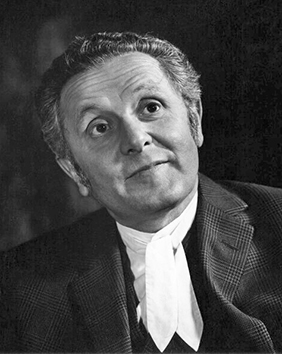
Leopold Abse was a British lawyer and politician. He was a British Labour MP for nearly 30 years, noted for promoting private member's bills to decriminalise male homosexual relations and liberalise the divorce laws. During his parliamentary career, Abse introduced more private member's bills than any other parliamentarian in the 20th century. After his retirement from Parliament he wrote several books about politics, based on his interest in psychoanalysis.

The 48th New Zealand Parliament was a term of the Parliament of New Zealand. Its composition was determined at a general election held on 17 September 2005. The new parliament met for the first time on 7 November 2005. It was dissolved on 3 October 2008.
Isle of Ely was a county constituency represented in the House of Commons of the Parliament of the United Kingdom, centred on the Isle of Ely in Cambridgeshire. Until its abolition in 1983, it elected one Member of Parliament (MP) by the first past the post system of election.
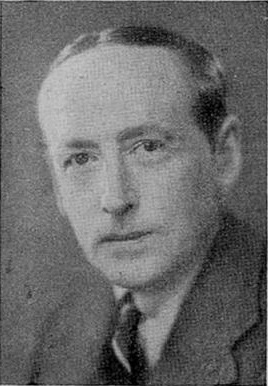
Sir Geoffrey Le Mesurier Mander was a Midland industrialist and chairman of Mander Brothers Ltd., paint and varnish manufacturers in Wolverhampton, England, an art collector and Liberal parliamentarian.

No Love for Johnnie is a 1961 British drama film in CinemaScope directed by Ralph Thomas. It is based on the 1959 book of the same title by the Labour Member of Parliament Wilfred Fienburgh, and stars Peter Finch.

The 1982 Beaconsfield by-election was a parliamentary by-election held on 27 May 1982 for the House of Commons constituency of Beaconsfield in Buckinghamshire.
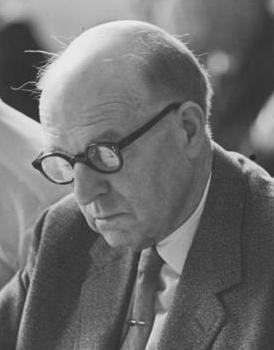
Denis Nowell Pritt, QC was a British barrister and left-wing Labour Party politician. Born in Harlesden, Middlesex, he was educated at Winchester College and the University of London.
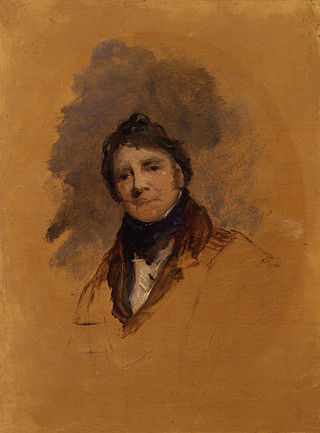
Field Marshal Thomas Grosvenor was a British Army officer. After serving as a junior officer defending the Bank of England during the Gordon Riots he took part in the Flanders Campaign including the retreat into Germany during the French Revolutionary Wars. He served as a brigade commander at the Battle of Copenhagen and was then deployed to Walcheren in the Netherlands where he served as deputy commander of a division led by Sir Eyre Coote during the disastrous Walcheren Campaign.

A general election was held in the United Kingdom on 6 May 2010 and all 59 seats in Scotland were contested. The election result in Scotland was unusual in that there wasn't any change of seats from the 2005 general election, although the Labour Party took back two seats that it had lost in by-elections. This was the last general election at which the Labour Party won a majority of seats and plurality of votes in Scotland until 2024.

Doctor in Charge is a British television comedy series based on a set of books by Richard Gordon about the misadventures of a group of doctors. The series follows directly from its predecessor Doctor at Large. It was produced by London Weekend Television and broadcast on ITV during 1972 and 1973. Barry Evans was unable to return for this series.
A Very British Coup is a 1988 British political serial adapted from Chris Mullin's 1982 novel A Very British Coup in 1988 by screenwriter Alan Plater and director Mick Jackson. Starring Ray McAnally, the series was first screened on Channel 4 and won Bafta and Emmy awards, and was screened in more than 30 countries.
The Whitehall Worrier is a British comedy television series which first aired on BBC One in 1967. Revolving around the career of one of the minister's in Harold Wilson's Labour government, the series was gentle in style and closer to a traditional farce than more contemporary satire.

















